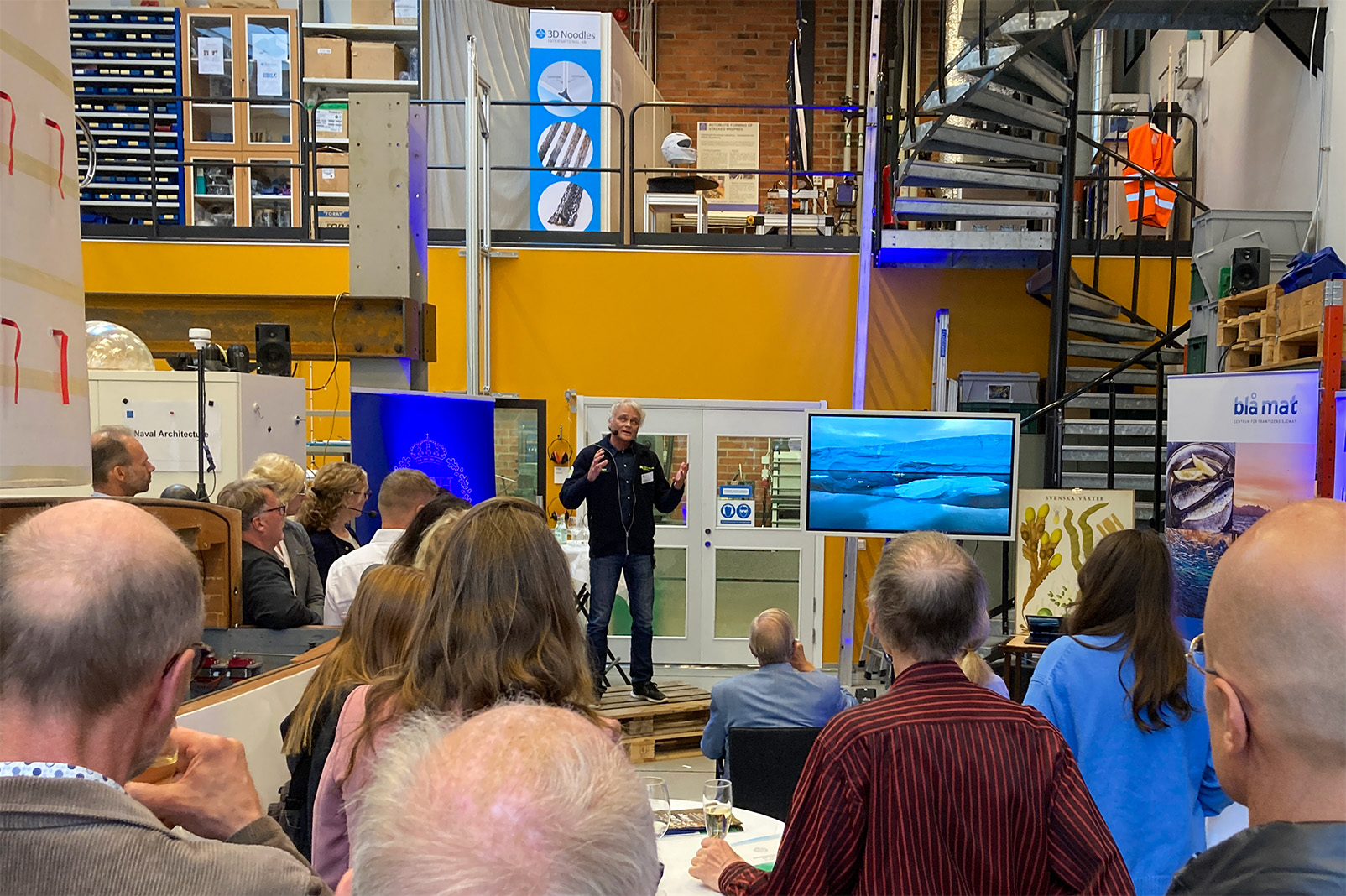“The importance of technology for our oceans”
KTH's water-related research showcased in seminar

Water-related research at KTH covers a wide range of themes. A common denominator is the practical approach and the solution-oriented quality of projects and research areas. This makes it ideal for external financiers wanting to see their contributions having a tangible impact. On Monday 24 September, KTH’s Research Support Office organised an event – “The importance of technology for our oceans” – to showcase the ongoing water-related research at the university.
Annika Borgenstam, KTH’s Vice President for Research opened the event by highlighting the crucial importance of water, particularly in vulnerable marine areas such as the Baltic Sea, and the need for research to reduce emissions from ships, agriculture, and other sources. She also emphasized the important knowledge KTH can contribute to society.
The attendants also received a recorded greeting from Vilma Bobeck, a student at KTH and a silver medallist in sailing at the Paris summer Olympics.
Underwater robots for the Arctic and the Baltic Sea
Peter Sigray, a researcher at and the director of the Swedish Maritime Robotics Centre at KTH, had just returned from a 42-day research expedition with the icebreaker Oden to Greenland where autonomous underwater vehicles had been put to hard challenges in areas inaccessible to ships. He underscored the significance of autonomous underwater robots for investigating hard-to-reach shallow areas in the Baltic Sea, where boat-based research is both costly and challenging.
Algae farming - a fast-growing emerging industry
Fredrik Gröndahl, a docent and the director of Blue Food – Centre for future seafood, a collaboration between KTH, six other academic parties and many other organisations, presented the work at the Djurö Field Station and emphasized the role of water in generating wealth. He described the work in the Blue Food centre, with a special focus on algae cultivation. This is a fast-growing industry in Sweden originating from an earlier KTH-led research initiative, where companies like Ikea are involved in sourcing alternative raw materials for plastics, textiles and food. Fredrik Gröndahl also highlighted the need for collaboration with the wind energy industry to make efficient use of marine spaces and the broader perspective that engineers, technical universities and new technologies like AI and underwater robots can bring in facing sustainability challenges.
Sourcing phosporous from the Baltic Sea
Zeynep Cetecioglu Gurol, an associate professor at KTH, and circular research theme leader at WaterCentre@KTH , discussed the need to extract phosphorus – needed for fertilizers and cleaning products – from the sea instead of importing it from other countries. She talked about earlier financial contributions from foundations that had facilitated substantial funding from the European Union. Zeynep Cetecioglu Gurol is working with floating wetlands in the Stockholm archipelago, and she wants to see if it would be possible to produce food and energy crops on them. This would diminish excess nutrients in the Baltic Sea and at the same time contribute to valuable production.
“Flying” electric boats
Ivan Stenius, a researcher at KTH, introduced “flying” electric-powered boats, which use hydrofoils to reduce energy consumption and noise. He emphasized KTH's knowledge in developing battery safety and drivetrains for marine applications, as well as being able to tackle demanding challenges in balancing and regulating the vessels. The attendants where shown a speedboat from the Swedish Sea Rescue Society, equipped with hydrofoil “wings”. Ivan Stenius’ group is currently working on a nine-meter rescue boat, and they are testing a unit with a drivetrain and balancing equipment that can be mounted on a boat. This is an area where modest financial contributions can make a great difference.
The dawn for a new era of sailing ships
Jakob Kuttenkeuler, a professor at KTH, is working at a larger scale. In a collaboration with Wallenius and Alfa Laval, KTH is contributing with crucial technical knowledge for the construction of modern-day sailing ships in the Oceanbird project. The plan is to build roll-on/roll-of ships with a capacity of 7,000 cars that will harness wind power and reduce emissions from maritime transport. An important part of the work is having students at KTH working multidisciplinary in the project.
The seminar concluded with a thank-you speech by Annika Borgenstam where she once again emphasized the broad and interdisciplinary research being conducted at KTH related to water issues. She also hinted about many upcoming similar ctivities in the lead-up to KTH's 200th anniversary in 2027.
